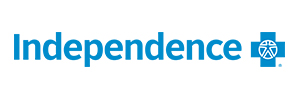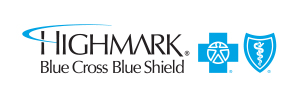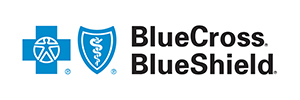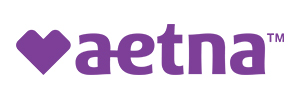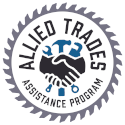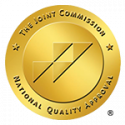The recovery from Substance Use (Abuse) Disorder is a painful experience at many levels for the person trying to overcome it, but they are not the only ones going through the process. Oftentimes friends and family find themselves traveling the road to recovery right alongside those dealing with their addiction. While they would like to see things return to normal for their loved ones as soon as possible, the long journey becomes easier with their active involvement in the recovery.
Drug rehab can produce successful and lasting results more often when professional caregivers and family support also play a role in the addiction treatment process. Encouragement and support from family can make a world of difference in recovery especially when it is a conscious, planned effort.
The role of the family begins with accepting the problem at hand. Many families can quickly disintegrate into a dysfunctional system with an active substance abuse case in the midst. When a family fails to stop functioning practically with calmness, it delays the onset of much-needed treatment. The first step for a family member is to stop being in denial and employing inadequate coping strategies. Reaching out to professional caregivers as early as possible is one way to organize a plan and establish the support needed to in turn BE the best support possible.
Research indicates that almost 21 million Americans have at least one addiction, yet only 10% of them receive treatment. Early treatment is even more important for adolescents as they are prone to risky behaviors that can lead to even more harmful and longer-lasting negative outcomes.
A rehabilitation treatment provider can offer one of many ways to get the recovery going. Whether the family chooses outpatient rehab, inpatient treatment, or even partial hospitalization, it is vital to be actively involved and play a complementary role in consultation with the experts. It is also important to understand that “family” doesn’t always mean related by blood – a family member may also qualify as anyone who has a strong and enduring emotional bond with the patient or is instrumental in providing financial resources, love, and care.
Here are a few more ways for families to cope with the situation where someone they love is afflicted with addiction / substance use disorder:
Learn about the illness
Knowledge is power, and in the battle against addiction, it is your most powerful ally. Substance Use Disorder encompasses various intoxicants with an associated effect on the afflicted person’s brain, behavior, and physiological changes. Even some harmless substances, when used excessively or without medical supervision, can lead to addiction. While alcohol, marijuana, heroin, cocaine, and nicotine are known drugs, the list of all addictive substances is far longer.
When in doubt about a family member’s behavior, the right learning can help gauge whether the person is displaying signs of addiction. For example, while marijuana decreases reaction time and leaves an odor on clothes, K2 can induce extreme agitation, or a meth-induced high can lead to rapid or rambling speech.
Different substances have differing rates at which addiction can kick in and signs and symptoms when a person is in the habit of using. The right knowledge about addiction can help family members come to terms with their loved one’s addiction as well as spot the signs of a problem. Gathering adequate information about addiction can help dispel misbeliefs that addiction is by choice or due to some weakness.
Take support from a peer group
Family members of an addict often become dysfunctional owing to years of stress that one person’s condition puts on their immediate circles. As anger and frustration seep in, communication breaks down, and darkness can envelop even the most committed of families. During such times, connecting with peers in the same situation can lead to new learning from shared experiences and an overall sense of renewed hope. ProjectKnow.com is one of many organizations that aim to provide knowledge and support of this kind.
Go to family therapy sessions
Addiction not only takes its toll on the individual in question but spouses, siblings, parents, children, and friends. Over the years, family members can fall prey to self-doubt, guilt, anger, or a sense of resignation over a loved one’s condition. As such, silence and distance creep in and make family members incapable of looking at the situation objectively, let alone take measures to work together towards recovery.
According to a paper on ‘Substance use Disorder and Family Therapy’ (updated 2020), published in the National Center for Biotechnology Information, US National Library of Medicine website, integrating family counseling into SUD treatment leverages the vital role families can play in helping their family members change their substance use. The paper mentions that families can greatly influence the treatment of any illness, including SUDs. Family involvement on any level can:
- Motivate individuals facing addiction to receive or continue treatment.
- Improve overall family functioning.
- Foster healing for family members affected by the consequences of addiction.
- Reduce risk in children and adolescents of being exposed to violence and of developing SUDs/mental disorders.
- Family counseling in SUD treatment is positively associated with increased treatment engagement and retention rates, treatment cost-effectiveness, and improved outcomes for individual clients and their families.
A research report published in the Journal of Family Therapy mentions that family therapy is more effective for drug misuse in adolescence than other types of treatment, including cognitive-behavioral therapy, motivational interviewing, psychoeducation, and various forms of individual and group counseling.
We can sum up some of the primary benefits of family counseling as:
- Improving family dynamics and enabling healthy boundaries.
- Addressing communication issues among family members and enabling them to speak openly to each other once again.
- Helping family members take strength from each other and cope with the problem at hand, keeping objectives in mind and boundaries intact.
- Harnessing the power of family dynamics and relationships to pave the road for recovery hand-in-hand as one team.
Hope for the best – prepare for setbacks
The road to recovery is long, arduous, and filled with setbacks. Behaviors and patterns associated with addiction may not always go away as expected or hoped. A relapse, even as the patient was showing good signs of recovery, is a possible and often common scenario. Families are prone to disappointment and frustration in the face of repeated failure to reach a desired state of normalcy in those they love. However, treatment is a long process with ups and downs, with forward progress being the ultimate goal.
According to the National Institute of Health (NIH), drug treatment is intended to help addicted individuals stop compulsive drug seeking and use. Treatment can occur in various settings, take many different forms, and last for different lengths of time. Because drug addiction is typically a chronic disorder characterized by occasional relapses, short-term, one-time treatment is usually insufficient. For many, treatment is a long-term process that involves multiple interventions and regular monitoring.
The power of shared experiences is a strong weapon in helping the entire family keep their spirits up in the battle against drug addiction recovery support and treatment. As a patient slowly recovers and occasionally slips back, small experiences such as eating together or cleaning up together after dinner can breed strong positive counter emotions to tide over low episodes of doubt in the recovery process.
Advocacy in the community
Caregivers or family members of addicted patients understand a lot more than other people in the course of looking after someone in the recovery process. While there is a lot of material available about addiction, getting a comprehensive idea about triggers, medication, and behavioral care can be overwhelming. It is normal for someone who has never cared for an addicted person to not know anything about the details of substance use disorder.
It is important to spread the right knowledge while ensuring that everyone struggling for addiction recovery follows the right protocol when it comes to language, behavior, and support.
A study by the Recovery Research Institute found that when referred to as “substance abuser,” a person was less likely to benefit from treatment than using the words “having a substance use disorder.” Destigmatizing drug addiction is an important role that family and friends of recovering addicts can play. It would serve a family well to speak up and drive community support to make things better.
Sobriety Solutions offers a full range of outpatient and inpatient drug treatment options at our Plymouth Meeting, PA, and Sicklerville, NJ locations. Give us a call or contact us here, and our treatment experts will develop the program that suits your needs.



